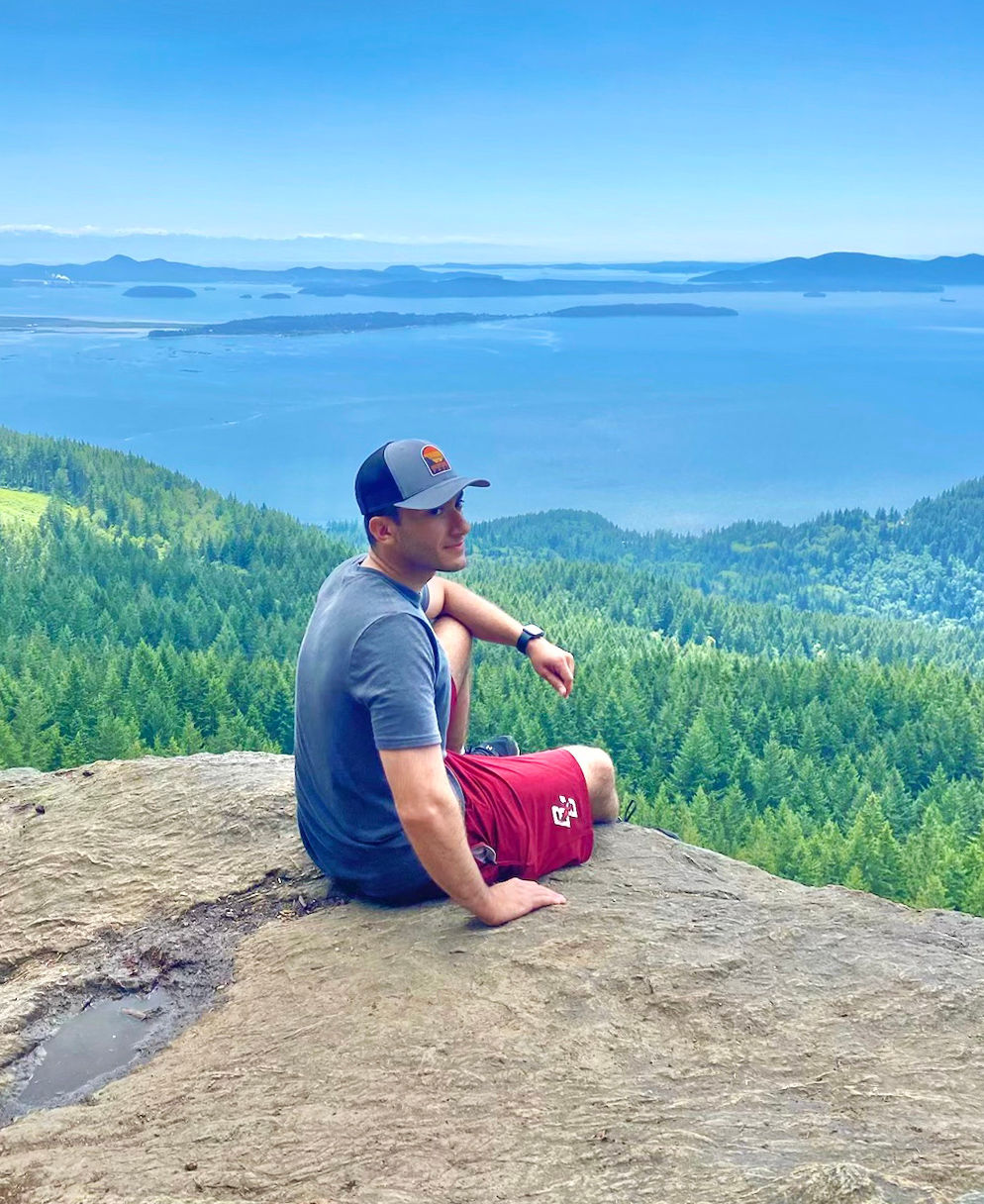Ahura Shadfar '24

Coming of Age in an Era of Chaos
As seniors approaching our graduation, many of us eagerly look forward to this new chapter of life after college. At the same time, our optimism is regularly tempered by the realities of the world today. We constantly see harrowing news when catching a glimpse of TV, picking up a newspaper, or even just opening our phones. Full-scale wars have returned to Europe and the Middle East. Democratic backsliding is becoming an international trend. Violent coups erode hard-fought progress across the developing world. The international community is becoming increasingly divided, as great powers inch toward a new Cold War. Insufficient progress is being made against climate change. Here in the United States, our own politics and cultural discourse has been made toxic by rank partisanship, polarization, and a multitude of other forces. This is the world in which our adulthood begins. We will live in the shadow of these developments for years to come, if not for the rest of our lives.
It’s important to recognize that none of this is normal. Statistics show steep resurgences in various disturbing metrics — deaths in armed conflict, a warming climate, and an increasing number of authoritarian regimes. Anecdotally, I’m sure all of us have spoken with older people who echo the same sense of dread. My mother grew up in 1980s Iran, amidst the horrific Iran-Iraq War and the consolidation of the contemporary regime’s oppressive hold on the country. She says she’s even more uncertain and fearful of our current world than that one.
From my perspective, there’s two ways we can live in this era of chaos. We could choose to enjoy our immense privilege in negativity, pessimism, or blissful ignorance – serving as mere spectators while the world unravels around us. Alternatively, we can choose to engage this world around us, meaningfully participating in society and citizenry. To me, this last option is the only one that makes a shred of sense. Our lifespans represent the tiniest sliver of human history; to the best of our ability, we must build a better world for future generations. If we don’t, all of the progress made over centuries will erode away. I think we’re seeing the early stages of that erosion today, but I doubt that it is irreversible. After meeting so many wonderful people here at Boston College, I have immense hope that we can reverse this trend – but only if we try.
To that end, I believe there are a couple of things we can do. Admittedly, this is the perspective of a 22 year-old fool with relatively minimal life experience. This obviously isn’t some great wisdom, but the meager outlook that shapes how I try to live my life. A lot of this is based on my Zoroastrian ethos, which calls for a life of “good thoughts, good words, good deeds.” Given how broad and vague that is, here’s how I’ve tried to quantify it for the current moment:
Firstly, we cannot succumb to nihilism or pessimism. We see incessant insinuations about how voting, activism, and dialogue “don’t matter,” or that people simply don’t care. What’s worse is believing nothing can be done and consequently embracing enaction. These are perhaps the most destructive forces to a democracy like ours. Our participatory system only works with a robust civil society of engaged citizens. Whether it be in our individual endeavors or shared aspirations, we have the power to have an immense impact on the world. This is a truth we simply cannot forget. Things may continue to get worse before they get better, but our hopes of a better future must continue to drive our worldview. If we give up, nothing is left to stop the world from descending even further.
While we must retain our youthful optimism, it is important that we never stop learning. Our youth means that we are thoroughly inexperienced, and that we lack a range of perspectives on life. However, this can be mitigated by staying informed. This doesn’t simply mean reading the news – especially if your favorite outlets espouse a particular outlook. It means actively keeping an open mind. Converse in good faith with people you disagree with. Understand their positions and be open to new ideas. Ask genuine questions, and be receptive when others have questions for you. Avoid translating your passions into anger against others – God knows we have enough of that today. None of us have all the answers, but engaging with one another gets us closer to the truth.
Lastly, it is indispensable to live in service to something greater than ourselves. Merely achieving success or accumulating wealth in of itself is a waste of one’s lifetime. It leaves nothing constructive behind, and money and titles won’t follow you to the grave. This isn’t to say that one should live in poverty (especially if those student loans won’t pay themselves off). Instead, it is a calling to leave the world better than you left it. Focus your time – or a portion of it – in gainful service to others. This can take so many forms: public service, community organizing, teaching, constructive lobbying, innovation, and so many other fields.
Amidst all the chaos, violence, and uncertainty of the world we’re entering, we must have faith that we can make it better. And we must take substantive actions in that direction. I am confident that, one way or another, we’ll get there – and I know I’m not alone. Thank you to all the amazing people I’ve met at BC, and I can’t wait to see the amazing things you will do in the coming years.
Ahura Shadfar '24
April 2024

